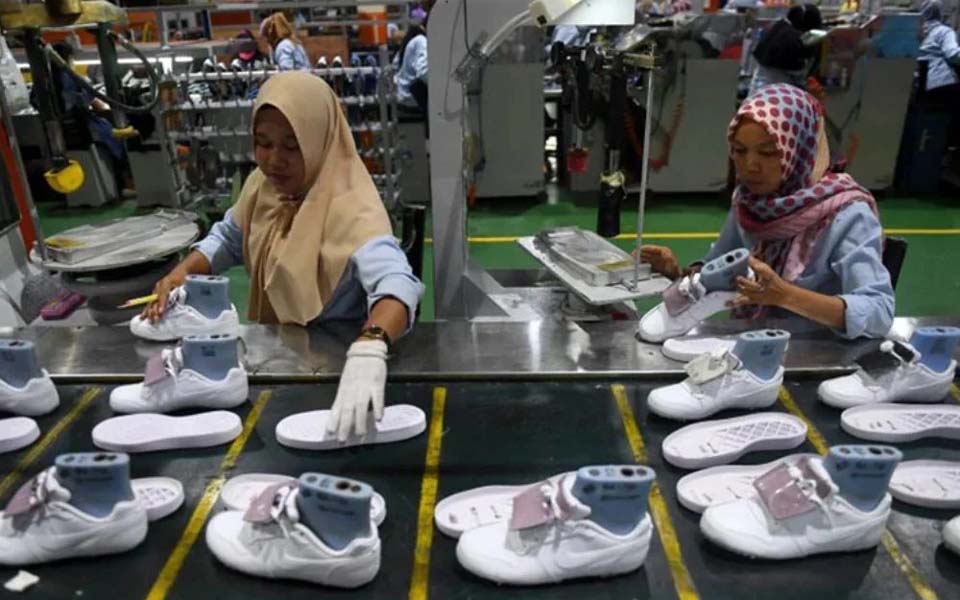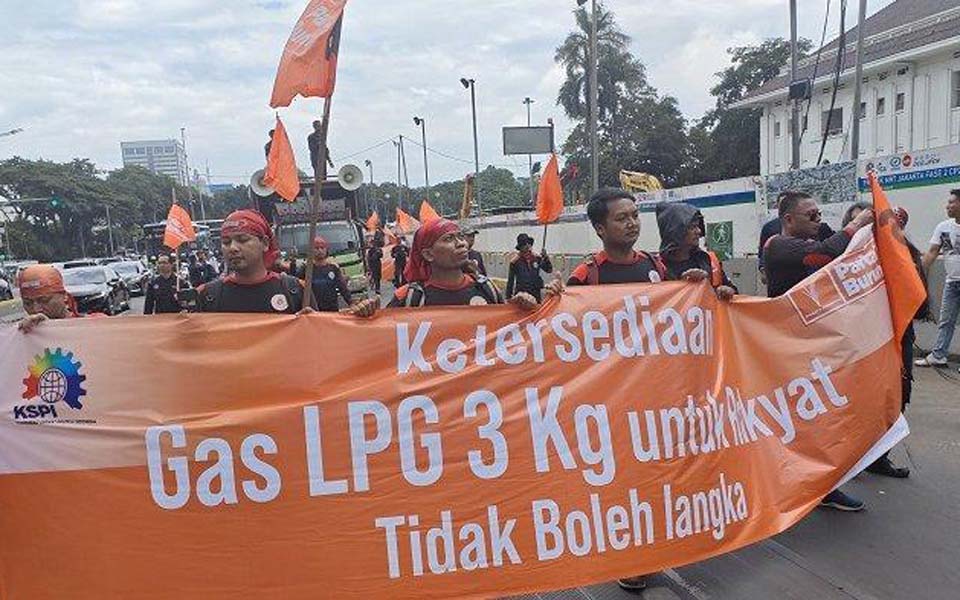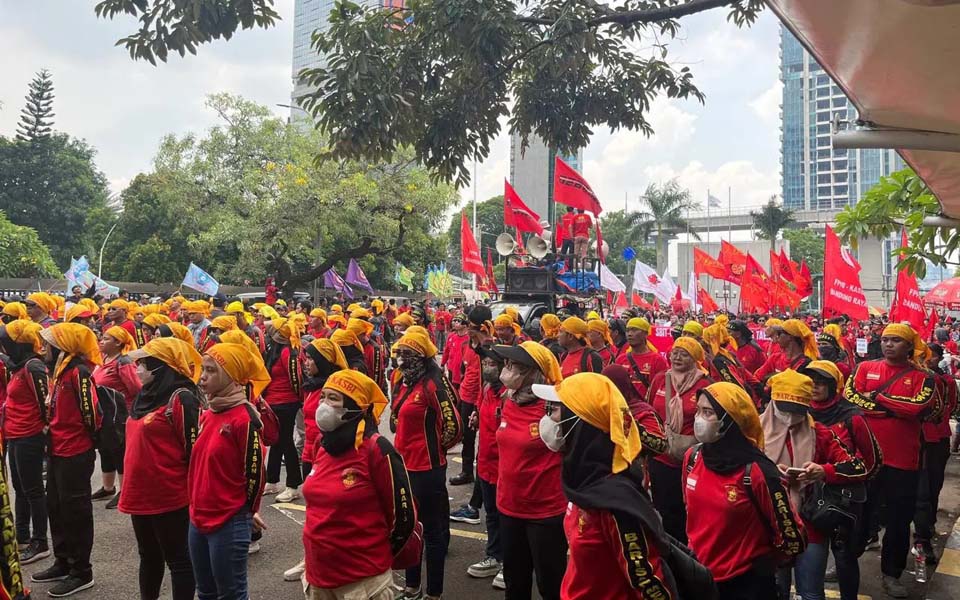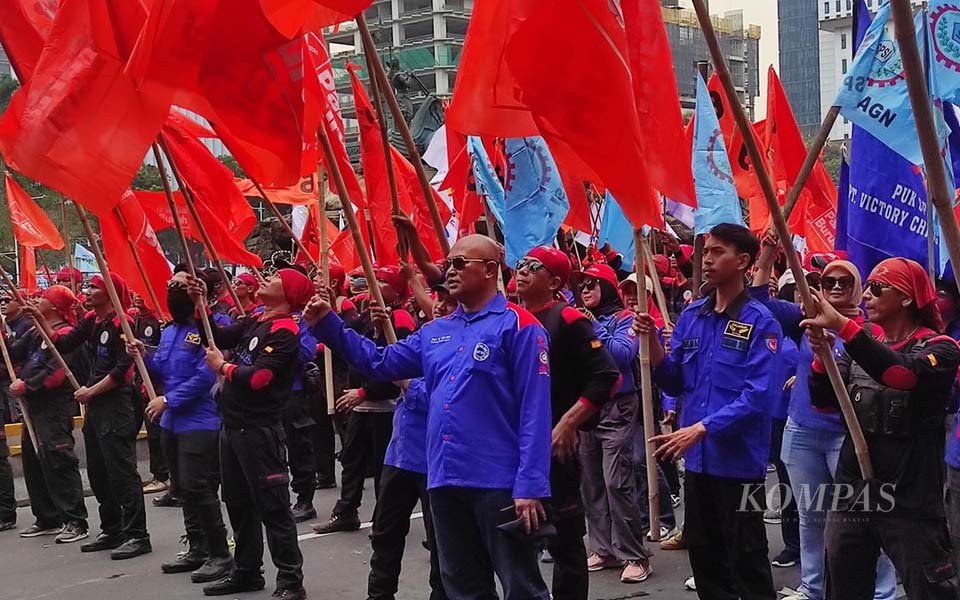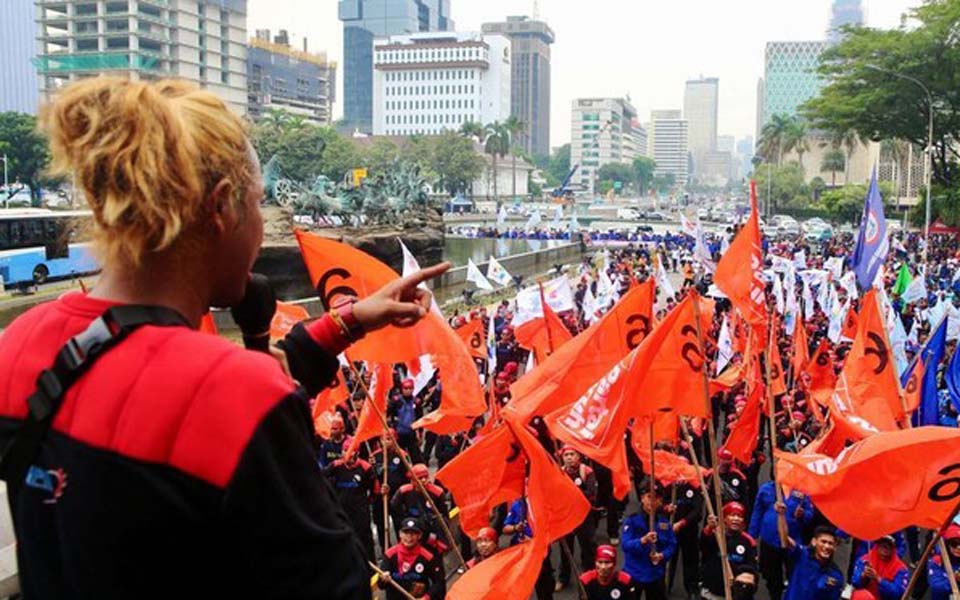Jakarta – The number of permanently employed workers in the formal sector is steadily declining and currently stands at only 35 percent of all formal workers. This has occurred in concert with Law Number 13/2003 on Labour (UU No 13/2003), which allows for the employment of contract labour from other companies, or outsourcing.
In Jakarta on Thursday December 23, the general chairperson of the Confederation of Prosperity Labor Unions (KSBSI), Rekson Silaban, said that out of the 33 million workers in the formal sector, only 35 percent have the status of workers or permanent workers.
Indonesian Employers Association (Apindo) General Chairperson Sofjan Wanandi was shocked by the data. “That means that the number of permanent workers is steadily declining. Prior to UU No 13/2003 coming into effect, the number of permanent workers in the formal sector was 67 percent”, said Wanandi.
He explained that this situation has occurred because prevailing legislation allows it. “I once asked an employer, why so much outsourcing? They replied, why not it’s allowed under law. This is a gloomy reflection on the end of the year”, said Wanandi.
The way to end outsourcing, said Wanandi, is by revising the labour law. The Indonesian Institute of Science (LIPI) is currently putting together a draft revision to the law. This was on the request of three parties, namely employers, the government and workers. “So, if there is a draft circulating at the moment, it’s bogus”, said Wanandi.
Yesterday, the PT Telkom Indonesia Outsourced Employees Association, through a written statement, asked the state-owned telecommunication company PT Telkom Indonesia to temporarily stop cooperating with PT Intracotama Daya Perdana, in this instance PT Mitra Nusantara Fonindo, as the outsourcing service provider to PT Telkom.
The request was related to the dismissal of 141 employees on March 22 without the obligatory payment of employees’ normative rights in accordance with the labour law.
Silaban also revealed that 75-80 of cases related to workers’ severance pay in the Industrial Relations Court end in negotiations. “Meaning, workers loose out because they accept lower severance pay that regulated by UU No 13/2003,” he said. (idr)
[Translated by James Balowski.]







